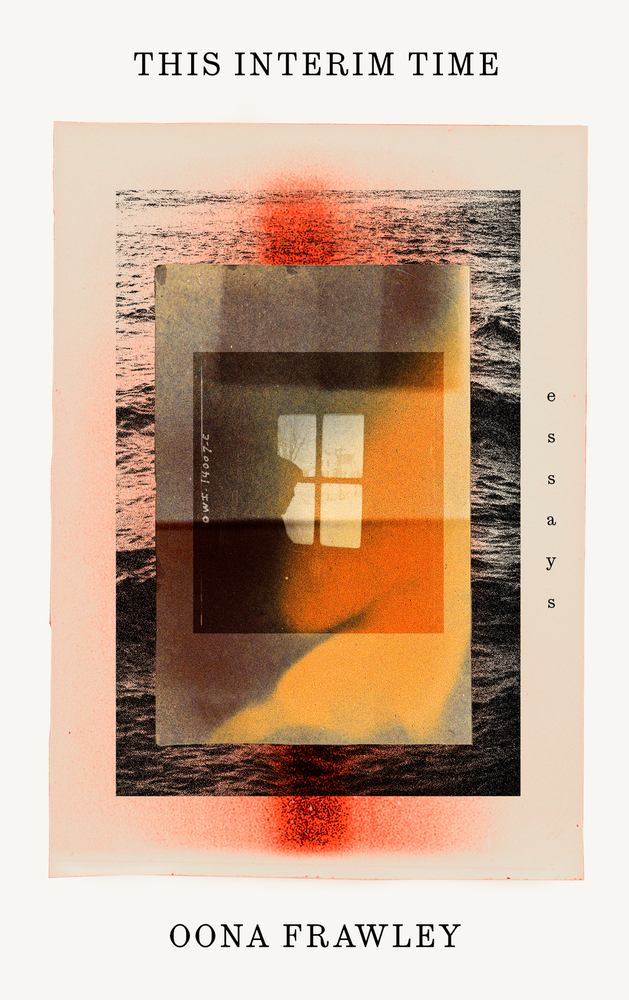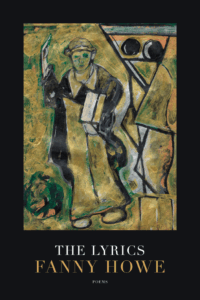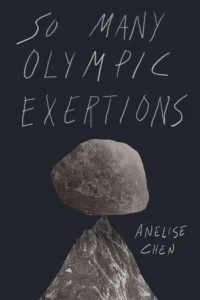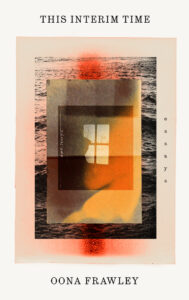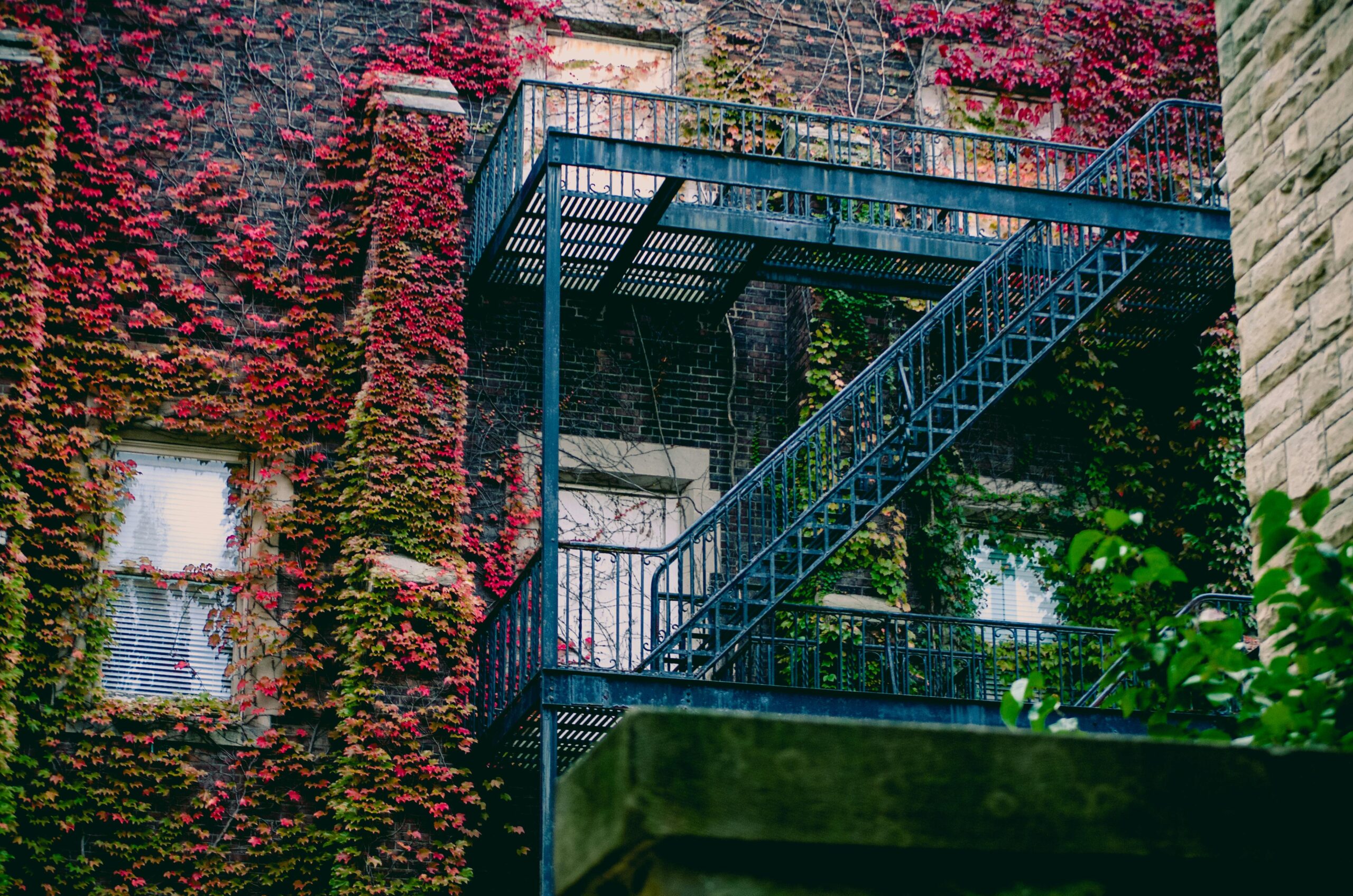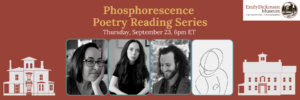Curated by KEI LIM
This July, ELIZABETH METZGER, NINA SEMCZUK, and SEÁN CARLSON bring you ruminations on what it feels like to return—to home, to memory, to oneself. As they make sense of their own lives through a poetry collection, novel, and essay collection, their recommendations invite us to contemplate what it means to exist within both change and stillness, and how time itself can wander and fragment.
Fanny Howe’s The Lyrics, recommended by Issue 24 Contributor Elizabeth Metzger
It’s early July, and I’m in the middle of moving back to the East Coast. Right now, a few days after the death of the poet Fanny Howe, I am reading her collection The Lyrics, on a screened porch in the late afternoon in the Berkshires, watching geese gather on a tiny red dock. I can hear the voices of parents across the pond teaching their children to fish, to let the fish go. I’m appreciating the element of air as I remember it from childhood, a sort of thickening all around me that feels wearable, welcoming, at times oppressive, a return to an old life from the other side.
I have read Fanny Howe over the years, but when I heard she died a few days ago, in the same summer storm I had slept through while visiting Cambridge, I felt stunned to find myself so close to her poetic landscape, yet still quite far from a sense of her work. After reading several beautiful tributes by poets I admire (Ilya Kaminsky, Katie Peterson, Christina Davis, Ocean Vuong, Kazim Ali, etc.) I stopped in The Grolier to buy one of her books. The Lyrics opens with a multipart poem “Forty Days,” which begins on the summer solstice: “If I can just keep walking / It will not be now/ But next…” Immediately I felt the sense of time becoming the air element, the humidity of East coast summers, how air meets the skin and makes a layer there, not sweat but spirit. The invisible world seems to hold the body for a moment in evidence of something beyond it. In Howe’s work, wandering is necessary for the sacred. Even indecision is momentous and has direction. The spirit is not just within.
The poems in The Lyrics rove toward a knowing that can never entirely be reached: “Where, if I go far enough, will I find a sacred place?” The speaker travels to a monastery (in later poems, to Ireland) and considers her own mystical relation to the word alongside the monks, her own complex experience of being American and the radical reality of being a guest on this Earth. Though I am discovering Howe’s voice in a deeper way only now that she has left the Earth, I find comfort in the way her mind moves, a sort of slow no-nonsense wisdom like the familiar steps of a dead relative coming home. Or is that the memory of steps, the rhythm of my own outer spirit?
The poem ends:
Call I won’t call back
Call up into the night:
“Knower, how is this voice different from the others?”
The promise of the poet-speaker not answering is a demand to call on her anyway, which is maybe what all great poems call us to do.
The moral imperative here seems one of accepting the inevitable with tenderness while continuing to question everything as precisely as possible. At a season when I myself am moving (returning?) east geographically, a bit spiritually unmoored in my sense of one lifetime (crowded with absence, occasionally wiping beads of uncertainty from some existential brow) I feel in Howe’s poems the honest salty company of a person a few laps ahead of me on the spiritual track: “I was a ghost before I was a tramp.” Howe’s is not the vibrant aliveness I turn to other poets for but a quieter, no less intense, record of living: “I crossed into a landscape / Where everything was finished.”
The last poem of this 2007 collection, “No Sleep,” ends “No sons, no daughters / no poets, no more house.” I am alone reading on the porch of an old world, without my children, those souls I am to love most on earth. What is strangest about this place are the ways in which it is familiar, the ways in which it has continued to thrive all this time without my noticing. This is not just your childhood, the geese scream, this is not even yours exactly, this is life. If there are houses here, they are for others’ sons and daughters. The poems have lost their poets. Summer brings us together around the pond, voices in the same air, nothing more.
Even what empties and decays is something that will happen. Howe doesn’t shy away from this fact: “The fruit tree is pinned to a wall so the fruits / Are less likely to fall. // Fall they will…” She doesn’t bother to include a “but” or “yet” because whatever happens—falling, included—Howe reminds us, is a human act. The fact that we will fail does not contradict our efforts to thrive. All that means survival. We rest in order to remain. We read. What else is summer for?
Anelise Chen’s So Many Olympic Exertions; recommended by TC Online Contributor Nina Semczuk
What do Olympic losers, dissertations, and clams have in common? Answer: the curious mind of Anelise Chen. This delightful writer, whom I discovered when I was assigned to review her latest book, a hybrid memoir titled Clam Down: A Metamorphosis, has a gift for amalgamating seemingly unconnected topics, anecdotes, and facts; for instance, Charles Darwin’s grandfather’s coat of arms, Georgia O’Keefe, and a certain family of Taiwanese immigrants.
While her work is wonderfully unique, she uses a fragmentary style reminiscent of Jenny Offill, and a way of questioning the world akin to Sheila Heiti—two writers I love, so it’s not surprising that I’ve fallen for Chen. Clam Down is written with a wry sense of humor, and I sought more of it, which brought me to Chen’s backlist, which consists of one book, So Many Olympic Exertions, published in 2017 by Kaya Press.
In So Many Olympic Exertions, the narrator, Athena, is trying to finish her dissertation in American Studies, where she focuses on athletes and motivation. She’s already received an extension, and her deadline is fast approaching when she learns that an ex-boyfriend has died by suicide. In the face of academic and emotional upheaval, Athena returns to swimming, to the familiarity of a pool, having once been a successful child athlete.
She meditates on top-tier athletes, on dedicating one’s body to a sport. Chen writes, “Win or lose, the spectacle is stirring. One can throw oneself confidently down a mountainside, willingly enduring years of training and monotony and hardship and unhappiness for the fulfillment of this one, deeply meaningful goal. If that’s where one has decided meaning lies.” It’s the last sentence that reveals the narrator’s point-of-view, which interrogates how much meaning is placed on the end result; on winning. A number of fragments in So Many Olympic Exertions focus on what happens after winning, after an athlete hits their peak. Unfortunately, it’s almost never good. Athena finds many examples of eating disorders, depression, and suicide.
She also spends time searching the internet for the opposite of winners—quitters. “Giving up in the middle of a game violates a fundamental precept that we’ve all subscribed to. To quit is to protest. Quitters refuse. Quitters say no. Albert Camus: ‘What is a rebel? A man who says no.’”
While the pithy anecdotes from philosophers, athletes, coaches, and thinkers are fascinating and compelling in and of themselves, Athena’s journey is what captured me. Over the course of the novel, she grapples with her former lover’s death, moves back to the West Coast and into her immigrant parents’ home, continues to write, and questions our collective obsession with sports and winning athletes. Both of Chen’s books are ripe for rereading—they’re somehow dense yet also distilled. I can’t wait for more of her work.
Oona Frawley’s This Interim Time; recommended by TC Online Contributor Seán Carlson
No matter how frequent the travels, I still feel a certain haze whenever arriving from the United States into Shannon Airport in the west of Ireland. I trace the land and estuary below as we begin our descent in morning light, then walk the corridors alongside other passengers, regardless of where they call home, all navigating time zones in something of a dream state. Within these halls, I hold memories of coming and going with my parents, and now with my own children.
Here, in the departure lounge, I opened Oona Frawley’s This Interim Time. My family and I had returned to Ireland the previous morning, and after a jetlagged run of errands and hugs and kisses at the front door before work travels, I found myself back at Shannon, alone in transit with Time.
Frawley’s essay collection begins by conceding what it isn’t: the novel that she has tried to write for years modeled off her parents’ departure from Ireland for New York. In allowing for failure in her intended form, she has succeeded instead in crafting a heart-rending meditation on family and friendship from the fruits of her unborn work and the passage of the decade between.
From the vantage of a house owned by her husband’s family along the Atlantic coastline of County Mayo, Frawley writes in the hours while her children sleep. She seizes on the image of a “metal stage make-up box” in her childhood closet in a Manhattan apartment as a frame for understanding her parents as stage actors as well as her father’s “performance of a lifetime.” This refers to the secret of how the ground fell out from under his feet as “insurance agent, happily married, Ireland, 1959” surrounded by family in Sandymount, Dublin only for the couple to start anew in the United States as “servants, caretakers” living in the desolation of Arizona’s desert.
Confronting her father’s dual addictions—first gambling, later drinking—and their consequences for her mother and herself, Frawley revisits memory to anchor her love and affection for each of her parents as she knew them. With precision and tenderness, she flits between their real and imagined pasts, her own bifurcated sense of “home,” the depths of friendships, and a shared dislocation and community found alongside her immigrant neighbors that give way to the grace of day-to-day moments and the profound grief accompanying miscarriage, cancer, and dementia.
As I turned the final page of Time on my return flight to rejoin my family in County Kerry, at our home in the town where my mom was born, I remained suspended by the sheer beauty and sorrow held so consistently in the same breath. Jack Smyth’s arresting cover art sets Frawley’s “orange sun slung low and large in the dusk” over a montage of a silhouette beside a window and the sea, suggesting a portal. In Time, I also see a mirror. Frawley’s reflections on the “seemingly inconsequential” details she holds from the stories her mother passed on to her as a child, and that she in turn carries as a mother watching the ebbs and flows of her own children’s lives, reveal the vastness within the everyday that allows for it, ever so fleeting, to also become timeless.
